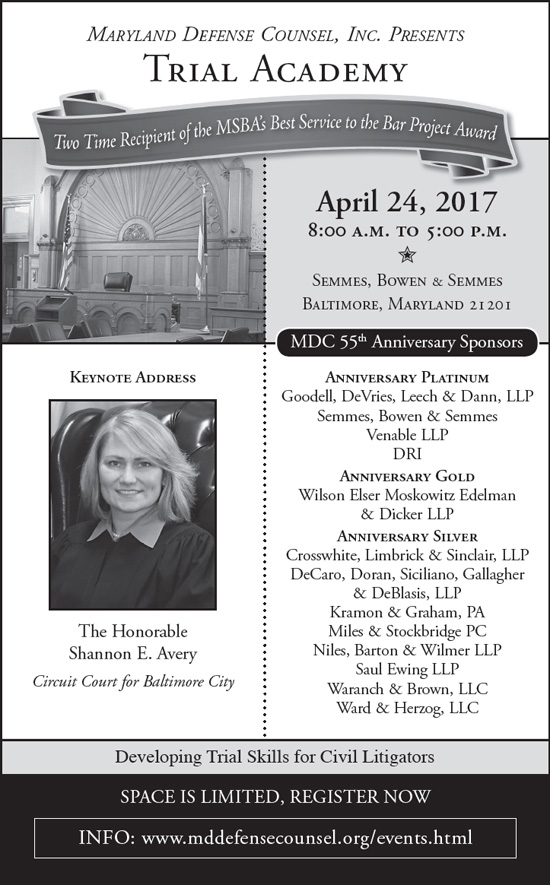
Comparative Negligence Comes To DC
Mary Malloy Dimaio
The District of Columbia enacted a new law affecting contributory negligence in cases involving collisions between motor vehicles and pedestrians or bicyclists.
Effective November 26, 2016, the Motor Vehicle Collision Recovery Act of 2016 amended the definition of contributory negligence as follows:
(a) The negligence of a pedestrian, bicyclist, or other non-motorized user of a public highway involved in a collision with a motor vehicle shall not bar the plaintiff’s recovery in any civil action unless the plaintiff’s negligence is:
(1) A proximate cause of the plaintiff’s injury; and
(2) Greater than the aggregated total amount of negligence of all of the defendants that proximately caused the plaintiff’s injury.
Id., D.C. Code Ann. ST § -3.
Thus, DC has introduced “modified” comparative negligence in cases involving collisions between motorized and non-motorized highway users only; contributory negligence continues to apply to all other negligence cases. Under the new law, for example, if the factfinder determines that plaintiff was 40% at fault in an accident, he or she would collect 60% of the determined verdict. If the plaintiff was found to be 60% at fault, he or she would collect nothing. (“Pure” comparative negligence would be a discount on the recovery for the actual percentage of plaintiff’s negligence in causing the injury, without regard to whether it is more than the defendants’ total percentage.)
A “non-motorized user” includes a person “using a skateboard, non-motorized scooter, Segway, tricycle, and other similar non-powered transportation devices.” Id.
The law specifically states that it does not affect the doctrines of joint and several liability or of last clear chance.
Hopefully, this law is simply a recognition of DC’s urban landscape and is not a harbinger of things to come in the District or Maryland, which are two of the five jurisdictions which recognize contributory negligence as a complete bar to a plaintiff’s recovery.
Mary Malloy Dimaio is a partner at Crosswhite, Limbrick & Sinclair, LLP in Baltimore. She is a past president of MDC.

|

